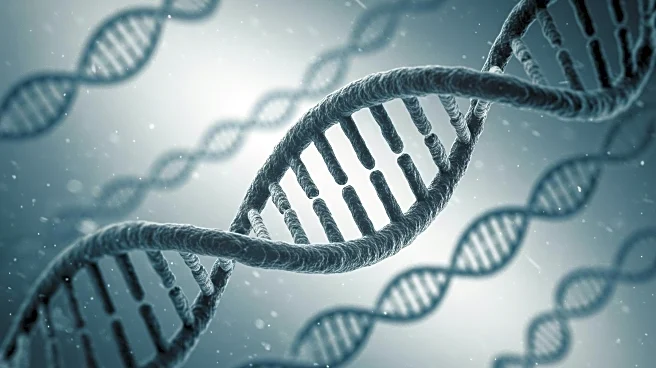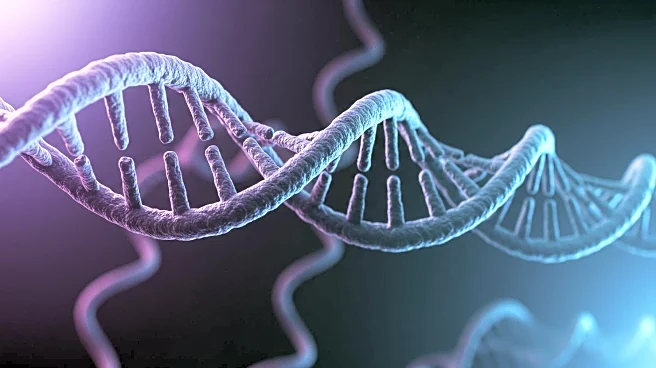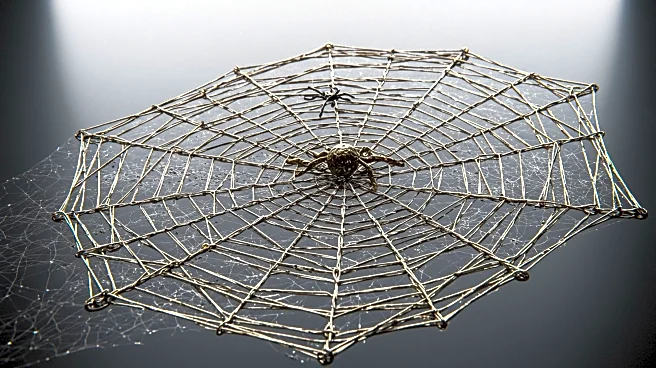What's Happening?
Recent research has highlighted the significant role of Denisovan interbreeding in shaping modern human genetics. The Denisovans, a hominin group identified through genetic analysis of a finger bone found in Siberia's Denisova Cave, interbred with early modern humans. This interbreeding left a genetic imprint that has influenced human evolution. Dr. Linda Ongaro from Trinity College Dublin and Professor Emilia Huerta-Sanchez have reviewed evidence suggesting multiple interbreeding events, each contributing distinct Denisovan genetic traits to modern humans. These traits include adaptations to specific environments, such as hypoxia tolerance in Tibetan populations and enhanced immunity. The Denisovan genetic influence is evident across a vast territory from Siberia to Southeast Asia and beyond.
Why It's Important?
The discovery of Denisovan genetic contributions to modern humans underscores the complexity of human evolution. It challenges the simplistic view of a linear evolutionary path and highlights the role of interbreeding in human adaptation. The Denisovan genes have provided survival advantages in various environments, such as cold tolerance in Inuit populations and hypoxia resistance in Tibetans. This research not only enriches our understanding of human history but also has implications for studying genetic diversity and adaptation. It may lead to insights into how ancient genetic traits continue to influence modern human health and disease resistance.
What's Next?
Future research aims to uncover more about Denisovan contributions to human genetics. This includes detailed genetic analyses in understudied populations to reveal hidden Denisovan ancestry. Additionally, integrating genetic data with archaeological findings could provide a more comprehensive understanding of Denisovan influence. Discovering more Denisovan fossils would help fill gaps in the evolutionary timeline and offer further insights into the genetic legacy of this mysterious hominin group.
Beyond the Headlines
The study of Denisovan genetics raises ethical and cultural questions about human identity and the interpretation of genetic heritage. It also prompts discussions on the preservation of genetic diversity and the potential for genetic research to inform public health strategies. Understanding ancient genetic influences could lead to advancements in personalized medicine and the development of treatments tailored to genetic predispositions.











